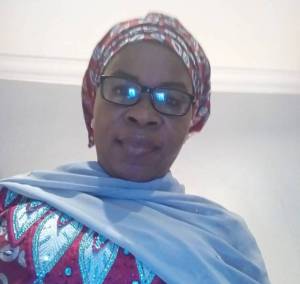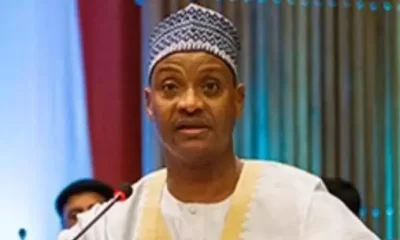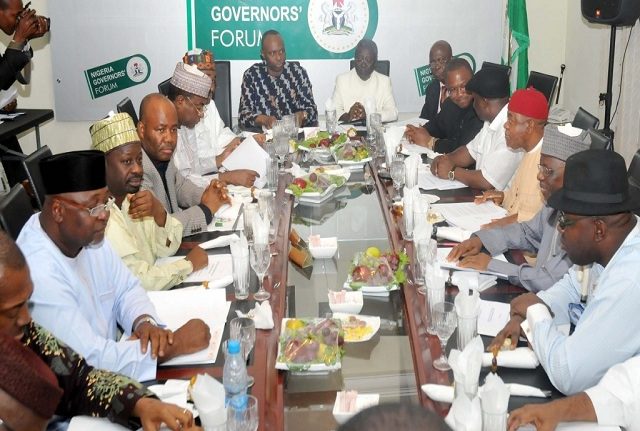Political Issues
INEC Chairman Can Not Bear The Blame Alone -By Zainab Suleiman Okino

There is a groundswell of resentment and anger in the land, justifiably so and much of it against the Independent National Electoral Commission (INEC) and its head, Professor Mahmood Yakubu, who has been working his heart out, and tirelessly at that, even before the postponement of last week’s election. He is the latest victim of the distrust and suspicious between the Nigerian people and government or any of its agencies, despite INEC’s purported independence, even though many do not believe the electoral commission is not at the beck and call of the executive. This didn’t start today; it is age-long. So, when the INEC chairman announced the postponement of the much-awaited February 16 national election a few hours to the take-off of the exercise, the election umpire was and continues to be blamed for ineptitude and called names. The chairman has been under fire, expectedly, and nobody has spared a thought for him or bothered to look at the other side of the presumed “failure”.
Unarguably, the postponement has been at a great cost to all: government, institutions, individuals and political actors, but none can take away the embarrassment that the election shift has brought to bear on our image, for the third time running – from the experiences of 2011 and 2015 under Prof Attahiru Jega, and now under Prof Yakubu, though all for different reasons. Whatever the excuses are, one only hopes that it will not become another negative national culture. The existing anxiety and uncertainties have further deepened the political divides of the moment. With the closure of borders and businesses, billions of naira were lost. The story is told of a woman who made a lot of local drink (kunu) to sell and was on the verge of losing her money before it was brought to the attention of social media users who crowd-funded to defray her cost. Schools were closed, weddings already fixed for next week Saturday (the new date for the election) will be disrupted, with a lot of people who had travelled to exercise their franchise getting into dilemmas; the loss was indeed enormous, but we should pause and ask ourselves if we as a people, by omission or commission, have not contributed to INEC’s travails.

Many a politician, in and out of government, are not ready to do the right thing. Starting from the politicisation of the INEC amendment bill, needless delay in appropriating INEC’s budget at the National Assembly to the long list of useless political parties whose names had to be on the ballot, INEC’s problems were already mounting. Most of these mushroom parties, which only exist in name and have no impact anywhere, fouled things up such that many of their so-called presidential candidates stepped down for the leading candidates after INEC had listed them on the ballot papers. Recall that INEC had submitted its strategic plans and budget estimate for the general elections and it went through a series of defence in 2018. However, due to the brick-bats between the executive and the legislature, the Commission’s budget was approved only in November and reduced by more than 30 per cent, thus leaving only one month to procure materials. In producing ballot papers, for example, there has to be colour separation for each of the 74 political parties and the security features have to be enhanced consistently to be ahead of desperate political operators. All these had to be put in place by the Commission to reduce rigging, which has become part of our elections anyway, to the barest minimum.
Going forward, INEC should present a bill to seek to abolish many of these mushroom parties using a set of criteria, because their leaders merely trade them off or use them as bargaining chips at the appropriate time.
Professor Mahmood talked of sabotage as one of the reasons for
One way or the other, the judiciary is blame-worthy too. Party primaries were not conducted in good time. It was left till the last minute and even after that, many involved had to resort to litigation for settlement due to the absence of internal party democracy and conflict resolution mechanisms. The courts, in turn, gave different verdicts and further compounded INEC’s woes. Professor Yakubu himself said they had 640 cases in which INEC is/was joined as a party and the Commission has to respect the provision of the law. Also, there are over 45 court injunctions and counter-injunctions to which the Commission had to either respond or respect.
An import-dependent economy or country that cannot produce card readers, PVCs or ballot papers and result sheets should not complain about one institution’s inability to produce expected results at a particular time. An endemic trust deficit makes it difficult for a Nigerian company to be trusted to produce anything and deliver without compromise; that is even the ones within our capacity. Already, there is talk of an INEC contractor who is equally a candidate in this election, raising eyebrows already. Poor infrastructure and insecurity, as well as desperation of the political class, meant that INEC had to contend with several logistical challenges to deliver both sensitive and non-sensitive materials to the 120,000 polling units in the country within seven days and amidst massive threats by saboteurs, insecurity and an infrastructural deficit.
People talk of INEC having four years to prepare for this election and therefore should have no excuse, as if they were idle within this period. According to the chairman, the Commission has “conducted 195 rerun and off-season elections across the country” in less than four years.
With so many challenges and a cumbersome election process, I was not surprised to see Professor Yakubu on television last Sunday looking disheveled and physically drained, an indication of how the INEC work is taking its toll on him. Well! Well!! Well!!! Managing election in Nigeria is that herculean.
















